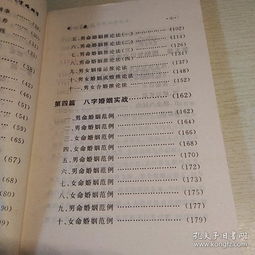Horoscope Sanhui is an ancient fortune telling technique used to study a person's fate and personal traits. Its core concept is to analyze a person's character traits, career fortune, and wealth by arranging and combining the information of the year, month, day, and hour of a person's birth to derive a person's natal chart. With deep historical roots and rich application practices, Bazi Sanhui is still widely used in the society, providing a way for people to solve confusions in life, increase self-confidence and guide personal development.
The "Eight Characters" of Horoscope Three Wisdom refers to eight characters, representing the year, month, day and hour of birth. Each of these four numbers represents a different element and attribute. The Eight Characters are arranged and combined to form a Four Pillars Eight Characters Natal Chart, with the Heavenly Stems and Earthly Branches of each character representing a characteristic personality or destiny. The number of combinations of the Eight Characters is huge and almost every person's natal chart is unique, therefore, the Eight Characters Sanhui can deduce the different character traits of each person based on his or her natal chart.
The "Three Wisdom" in the Horoscope refers to Wisdom, Emotional Wisdom and Physical Wisdom. Wisdom represents a person's intellectual ability and learning ability. The interrelationships between the Heavenly Stems and Earthly Branches in certain horoscopes can show whether a person's intellect is sharp or not, and whether he or she has a strong learning ability or not. Emotional intelligence represents a person's ability to handle interpersonal relationships, sensitivity to feelings, and emotional concern for the family. The Body Wisdom represents a person's physical condition and health-related characteristics. By analyzing certain elements and attributes in the natal chart, one can make a preliminary judgment of one's physical health.
The theoretical basis of the Horoscope Sanhui is the "Fate", i.e. the combination of heaven, earth, water and man at the time of one's birth. It believes that an individual's destiny is a combination of these factors. Although Bazi Sanhui cannot accurately predict a person's future, it can help people understand themselves better, recognize their own strengths and weaknesses, and change their destiny by adjusting their behaviors and ways of thinking.
In practical application, Bazi Sanhui can be used to guide people's life and career development. By analyzing the elements and attributes in the Natal Chart, one can determine a person's talent and potential, and guide him/her to choose a suitable field for his/her development. It is also possible to rationalize one's life and work based on the information in the natal chart and avoid behaviors and environments that are not conducive to one's development. In addition, the Eight Character Triple Wisdom can be used to help people solve their confusion and doubts in life and increase their self-confidence and courage.
Although the Eight Characteristics and Three Wisdom in has been around for thousands of years, its value is still recognized and applied in the society. It is not only an integral part of a traditional culture, but also an approach to the study of human behavior and lifestyle. In the modern era of rapid development of information, people need to reflect on and understand themselves more and more, and the Eight Characteristics and Three Wisdom is a tool to help people better understand themselves.
The Eight Characters Sanhui is an integral part of ancient fortune telling. By arranging and combining the eight characters of a person's birth, it can analyze a person's character traits, destiny and potential. It has a wide range of practical application value, which can help people understand themselves better, solve the confusion in life and guide personal development. Through the study of fortune-making, Bazi Sanhui also provides people with a way of thinking from individual destiny to the overall universe, enabling them to recognize more clearly the relationship between human beings and nature and destiny. While passing on and carrying forward the excellent traditional Chinese culture, Bazi Sanhui also provides a channel for modern people to re-examine themselves and understand life.

2. The method of checking Hui Gen Dao Yuan in the eight characters
The method of checking Hui Gen Dao Yuan in 八字
Horoscope is an important prediction method in traditional numerology, which can reveal the individual's destiny by analyzing the combinations of stems and branches in the year, month, day and hour of birth. Among them, Wisdom Root and Dao Fate are two key elements in the Eight Characteristics, which play an important role in the development of one's life.
Wisdom root refers to the quality of wisdom and learning ability of an individual. The stronger a person's wisdom root is, the richer his learning ability and knowledge reserve will be, and he will be able to achieve greater success in various fields. In Bazi, we can judge a person's wisdom root status through the combination of Heavenly Stems and Earthly Branches. For example, heavenly stems such as Geng, Non and A tend to represent higher wisdom, and earthly branches such as Shen, Zi and Hai tend to have strong learning ability as well. If these combinations of Heavenly Stems and Earthly Branches are present in a person's Bazi, then he tends to have a strong wisdom root.
Dao Karma refers to an individual's connection and chance with the environment. The better a person's Dao Karma is, the more supportive and successful they will be in society. In the Bazi, we can determine a person's Dao Karma through the combination of the year and month pillars. For example, the presence of the celestial stems of Xin, Kui, and C in the natal chart tends to represent better karma and opportunities. And, the Earthly Branches such as Yin, Mao and Xu are also often closely related to relationships and social networks. If the combination of these Heavenly Stems and Earthly Branches appear in a person's Eight Characteristics, then he tends to have better Dao Karma.
In the Eight Characteristics, Hui Gen and Dao Karma can influence each other. If a person has a good wisdom root, he or she will be able to improve his or her Dao Karma through continuous learning and accumulation of knowledge. And a person who has a better Dao Karma is often able to obtain more opportunities and support to further improve his or her Hui Gen. Thus, Hui Gen and Dao Karma play complementary roles in one's destiny.
In order to understand a person's Hui Gen and Dao Karma, we can check them by analyzing the combination of Heavenly Stems and Earthly Branches in the Eight Character Signs. The steps are as follows:
The first step is to look at the Heavenly Stem in the eight characters. The Heavenly Stem represents the condition of the individual's wisdom root. If the heavenly stem appears in the heavenly stem, such as Geng, Nong, A, etc., then it means that the person's wisdom root is better.
The second step is to check the Earthly Branches in the eight characters. The Earthly Branches represent the status of the individual's Dao Karma. If there are Shen, Zi and Hai in the Earthly Branches, then it means that the person's Dao Karma is good.
The third step is to analyze the combination of heavenly stems and earthly branches. If both good Heavenly Stems and Earthly Branches appear in a person's Eight Characteristics, then he tends to have stronger Hui Gen and Dao Karma; if a person's Eight Characteristics have better Heavenly Stems or Earthly Branches on one side, then he will also have certain advantages in Hui Gen or Dao Karma.
Through the above checking method, we can have a preliminary understanding of a person's wisdom root and Taoist destiny. Of course, Bazi is a complex system and needs to be analyzed in combination with other factors in order to get a more accurate conclusion. At the same time, when using Bazi to make predictions, we should not only look at the individual's wisdom root and Dao Karma, but also combine other factors, such as the yearly fortune and other factors to make a comprehensive analysis.
To summarize, the two important factors in the Eight Characteristics are Wisdom Root and Dao Karma, which play an important role in an individual's destiny. Through the combination of Heavenly Stems and Earthly Branches in the Bazi, we can understand the status of a person's Roots and Karma, and use this as an important basis for prediction. However, it is important to point out that the prediction of the eight characters can only be used for reference, not as the sole basis for determining the fate, because the individual's efforts and other external factors also have an impact on the fate.

